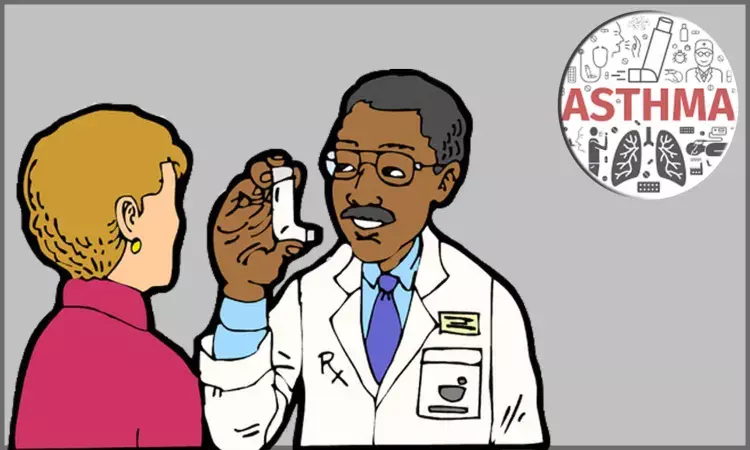- Home
- Medical news & Guidelines
- Anesthesiology
- Cardiology and CTVS
- Critical Care
- Dentistry
- Dermatology
- Diabetes and Endocrinology
- ENT
- Gastroenterology
- Medicine
- Nephrology
- Neurology
- Obstretics-Gynaecology
- Oncology
- Ophthalmology
- Orthopaedics
- Pediatrics-Neonatology
- Psychiatry
- Pulmonology
- Radiology
- Surgery
- Urology
- Laboratory Medicine
- Diet
- Nursing
- Paramedical
- Physiotherapy
- Health news
- Fact Check
- Bone Health Fact Check
- Brain Health Fact Check
- Cancer Related Fact Check
- Child Care Fact Check
- Dental and oral health fact check
- Diabetes and metabolic health fact check
- Diet and Nutrition Fact Check
- Eye and ENT Care Fact Check
- Fitness fact check
- Gut health fact check
- Heart health fact check
- Kidney health fact check
- Medical education fact check
- Men's health fact check
- Respiratory fact check
- Skin and hair care fact check
- Vaccine and Immunization fact check
- Women's health fact check
- AYUSH
- State News
- Andaman and Nicobar Islands
- Andhra Pradesh
- Arunachal Pradesh
- Assam
- Bihar
- Chandigarh
- Chattisgarh
- Dadra and Nagar Haveli
- Daman and Diu
- Delhi
- Goa
- Gujarat
- Haryana
- Himachal Pradesh
- Jammu & Kashmir
- Jharkhand
- Karnataka
- Kerala
- Ladakh
- Lakshadweep
- Madhya Pradesh
- Maharashtra
- Manipur
- Meghalaya
- Mizoram
- Nagaland
- Odisha
- Puducherry
- Punjab
- Rajasthan
- Sikkim
- Tamil Nadu
- Telangana
- Tripura
- Uttar Pradesh
- Uttrakhand
- West Bengal
- Medical Education
- Industry
'IDIOT' syndrome is hampering asthma treatment, say doctors

Lucknow: A new syndrome known as Internet Derived Information Obstructing Treatment (IDIOT) is emerging as a significant obstacle in asthma management, according to experts at the respiratory critical care unit of King George’s Medical University (KGMU) Lucknow.
Experts said that patients, especially the educated ones, were often misled by information gathered online, especially about steroids which could hinder them from getting the right treatment.
According to an IANS report, Prof Rajendra Prasad, former head of respiratory medicine at KGMU, said that every week two to three patients, influenced by incomplete internet knowledge, resist steroid prescriptions for asthma.
He stressed that steroids, when prescribed and monitored by doctors, are the most effective asthma treatment.
Also Read:UP: KGMU launches new telephone line for OPD appointment
Prof Ved Prakash, Head of the respiratory critical care department of KGMU, highlighted that around 1.9 lakh people died due to asthma complications in India annually, a concerning statistic, given that asthma can be managed well with proper medical guidance.
He pointed out that poor air quality worsens asthma and emphasised the importance of awareness and accurate diagnosis.
Prof Sumit Rungta of the medical gastroenterology and dermatology department added that asthma, being an allergy, cannot be cured but can be managed.
Meanwhile, experts at KGMU said that according to a survey by the Department of Respiratory Medicine, about 60 per cent of 500 asthma patients were found using the inhalers incorrectly. This improper use impacts the inhaler’s delivery to the lungs, compromising asthma management.
Consequently, patients are often prescribed higher medication dosages (two to three times a day) due to perceived ineffectiveness, when once or twice daily usage might suffice with the correct technique.
Experts noted that “incorrect inhalation may necessitate a separate inhaler for 10 per cent of patients”, reports news agency IANS.
Experts also underscored the importance of thorough mouth cleaning after inhaler use to manage respiratory diseases and prevent dental complications. He outlined key steps for effective inhaler usage, including shaking the inhaler before use, exhaling fully before medication administration, holding the inhaler in the correct position, inhaling deeply while dispensing the medicine, holding the breath for at least five seconds, and shaking the inhaler between puffs (if applicable).
Kajal Rajput joined Medical Dialogues as an Correspondent for the Latest Health News Section in 2019. She holds a Bachelor's degree in Arts from University of Delhi. She manly covers all the updates in health news, hospitals, doctors news, government policies and Health Ministry. She can be contacted at editorial@medicaldialogues.in Contact no. 011-43720751
Dr Kamal Kant Kohli-MBBS, DTCD- a chest specialist with more than 30 years of practice and a flair for writing clinical articles, Dr Kamal Kant Kohli joined Medical Dialogues as a Chief Editor of Medical News. Besides writing articles, as an editor, he proofreads and verifies all the medical content published on Medical Dialogues including those coming from journals, studies,medical conferences,guidelines etc. Email: drkohli@medicaldialogues.in. Contact no. 011-43720751


